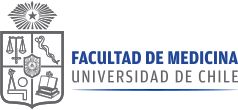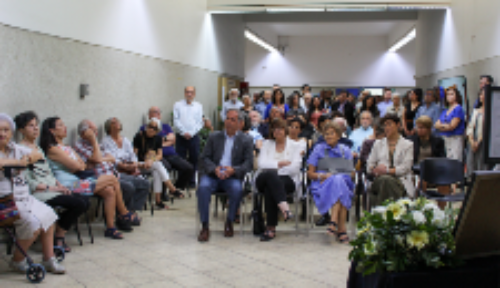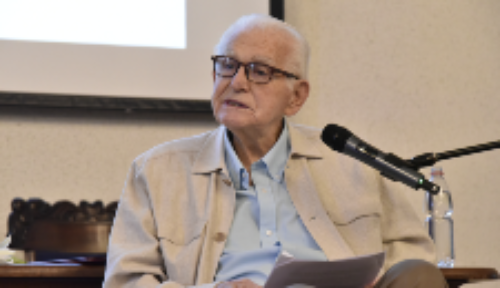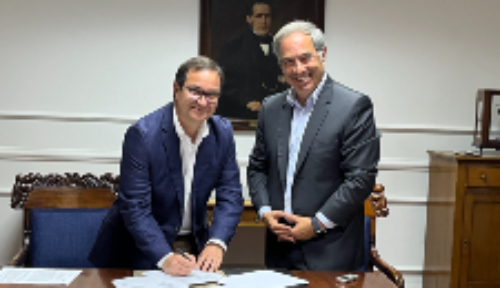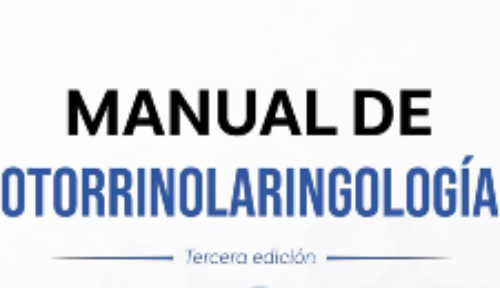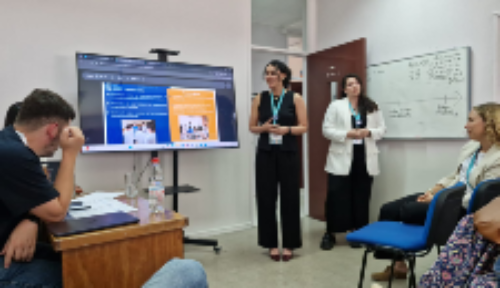BMJ 2024; 385 doi: https://doi.org/10.1136/bmj.q716 (Published 03 April 2024)Cite this as: BMJ 2024;385:q716
Deisy Ventura, professor of ethics
Miguel O’Ryan, dean
In recent decades, Latin America has made important contributions to global health. Although substantial economic and social inequalities and political instability continue to adversely affect population health, the region is developing knowledge, health policies, and experience that deserve wider recognition. Contributions include Latin America’s efforts in social medicine, especially in social security and nutrition; national public policies that have become a world reference, such as the compulsory licensing of an AIDS drug in Brazil in 2007; and the health cooperation agenda intended to create a platform for solidarity focusing on infrastructure, health, security, and natural resources within the framework of the now dissolved Union of South American Nations.
Building on these contributions, and to help boost the region’s profile and leadership in global health, The BMJ has established its first regional advisory board for Latin America, as part of its wider regional advisory board programme. We began work in late 2023 with a focus on identifying common themes and issues in countries within the region to advance collective efforts for health. The board will also advise and support the journal’s editorial strategies to publish leading research and commentary from Latin America.
Colonial legacy
The 20 countries in Latin America, with a total population of about 668 million, share several common cultural elements. These include their history of Iberian-European colonisation, which has deeply influenced native civilisations. Spanish is the predominant language, along with Portuguese, English, and French in specific countries, and more than 500 indigenous languages are struggling to survive. There is wide variation culturally, politically, and socially across the region.
Among those most affected by the harmful colonial legacy are indigenous and ethnic minority peoples. These groups make up around 10% of the subcontinent’s population overall, with the type and prevalence of health conditions differing between countries and between indigenous groups.
In the Amazon region, in particular, the health of indigenous populations is undermined by deforestation, predatory exploitation by transnational corporations, illegal mining, and land grabbing. Studies show that people of African descent have high maternal and infant mortality relative to other groups and poor access to complete vaccination programmes.6 A key focus of The BMJ’s regional advisory board is to increase the profile of Latin America in the global discourse on decolonisation, and to place the perspectives and voices of people marginalised by colonialism at the centre of this work.
Health challenges
Countries in Latin America face numerous health challenges. Foremost is the need to reduce health inequity through measures to improve the social, economic, and political determinants of health. The region is generally considered to be “middle income” economically, but substantial inequities persist both between and within countries. Many people live in poverty, and there are notable inequalities in access to education, healthcare, and social security. Reliance on a largely informal labour force resulted in the region being one of the worst affected by the health, economic, and social effects of the covid-19 pandemic.
Other important deficiencies that require attention include gaps in universal health coverage; gender based violence and discrimination against LGBTQ+ communities; political instability that undermines implementation of public health policies; substantial unregulated immigration; expansion of narcotrafficking accompanied by corruption and rising violence; elderly populations living in unsuitable environments; malnutrition, particularly obesity and poor nutritional balance; and mental and emotional ill health.
Climate change has the potential to aggravate many of these challenges and deserves urgent attention. In addition, the likelihood of further global health emergencies such as pandemics reinforces the need to consolidate the One Health approach, interconnecting animal, human, and environmental health.
In response to these challenges, several large scale interventions focusing on disease prevention and health education are being implemented in the region. Robust research in health and social sciences is also playing an important role, along with harmonising the health cooperation agendas of different multilateral organisations.
One Latin American contribution that could be critical in both health diplomacy and dealing with future emergencies is vaccines and vaccination. The region has emerged as a leader in evidence based vaccine policy and the development of effective vaccination strategies. Eradication of polio was first achieved in the Americas, and Latin America also had an important role in developing covid-19 vaccines, conducting several influential clinical trials and post-vaccination effectiveness studies. The region’s declared interest in expanding vaccine manufacturing and distribution capacities is a topic of increasing importance. For example, Brazil is currently resuming investment in health technology, seeking to reconcile economic development, especially job creation, with strengthening the public health system.
Academic medicine
All the above issues have important implications for the future of academic medicine in the region, in particular through informing curriculums for medical professionals; the sociocultural contexts of disease, the social determinants of health, and humanities must all be included. Technological advances, including simulation, virtual reality, and artificial intelligence, will also influence how and what we teach medical students and early years doctors. New research priorities and investments are emerging in the post-pandemic period across countries in Latin America, and these will be examined as part of the BMJ’s upcoming commission and campaign to advance academic medicine globally.
We encourage the Latin American health and research communities to engage with and contribute to The BMJ, taking advantage of this opportunity to help increase the region’s profile in the production of internationally important science, rebuild and extend its global leadership in health, participate in urgent debates on the decolonisation of health, build bridges with other regions of the global south with whom we share so many challenges, and contribute to a more equitable global health governance.
Acknowledgments
We thank the other members of the Latin America regional advisory board, Cecilia Albala, University of Chile; Joaquin Barnoya, San Carlos University of Guatemala; Mauricio L Barreto, Oswaldo Cruz Foundation (Fiocruz/Bahia), Brazil; Adele Benzaken, Fiocruz/Amazonas, Brazil; Pedro Cahn, Buenos Aires University Medical School, Argentina; Mercedes Colomar, Montevideo Clinical and Epidemiological Research Unit, Montevideo, Uruguay; Julio Croda, Federal University of Mato Grosso do Sul, Brazil; Patty García, Cayetano Heredia University, Peru; Gabriela Lotta, Getulio Vargas Foundation, Brazil; Jaime Miranda, Faculty of Medicine and Health, University of Sydney, Australia, as well as Jocalyn Clark, international editor of The BMJ
